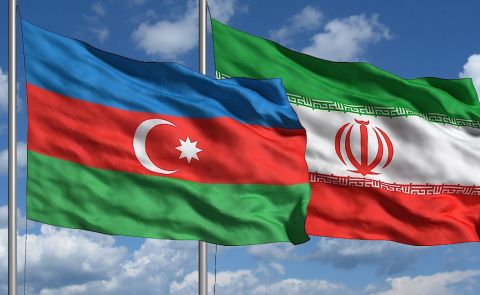
Azerbaijan Strengthens Energy Partnerships with Multiple Countries

On June 3, 2025, during the 30th Baku Energy Forum, ministers and officials from Guinea-Bissau, Czech Republic, Ukraine, Pakistan, Somalia, Moldova, and Romania announced new and ongoing initiatives in energy, agriculture, and climate cooperation with Azerbaijan. These initiatives include memoranda of understanding, energy storage projects, renewable energy developments, and regional infrastructure advancements.
On the sidelines of the 30th Baku Energy Forum and the 13th Caspian International Power and Green Energy Exhibition, Viriato Luis Soares Cassama, Guinea-Bissau’s Minister of Environment, Biodiversity, and Climate Action, announced that Azerbaijan and Guinea-Bissau would sign a memorandum of understanding in agriculture. Cassama recalled his December 2024 visit to Baku alongside Guinea-Bissau’s foreign minister and heads of key economic ministries, marking the start of cooperation in oil and gas, agriculture, climate change, and environmental protection. He confirmed that a memorandum with Azerbaijan’s Ministry of Agriculture would be signed during the visit, and a joint working group had been formed to advance cooperation in the upstream oil and gas sector. Cassama noted that implementation of existing agreements is expected by year-end and that Guinea-Bissau is developing a framework strategy for oil and gas collaboration, leveraging Azerbaijan’s extensive expertise.
Tomas Pojar, Czech National Security Advisor, announced during a panel discussion on “Global Cooperation for a Resilient and Sustainable Energy Future” at the Baku Energy Forum that Czechia would begin storing Azerbaijani oil in its petroleum reserves within two weeks. Pojar emphasized the critical role of diversified energy sources for national security and highlighted Czechia’s longstanding partnership with Azerbaijan, including discussions on small hydropower, solar panels, and wind turbines in Azerbaijan’s liberated territories.
Mykola Kolisnyk, Ukraine’s Deputy Minister of Energy, participated in the Baku Energy Forum, as noted by Ukraine’s Ambassador to Azerbaijan, Yuriy Husyev. Husyev stated that Ukraine was sharing its energy security experience and contributing to global dialogue on sustainable energy transitions, reinforcing Azerbaijan’s role as a key energy partner.
Ali Pervaiz Malik, Pakistan’s Federal Minister for Energy (Petroleum Division), announced on the sidelines of the forum that Pakistan is formulating a comprehensive strategy for energy efficiency and conservation. He expressed readiness to collaborate with Azerbaijan to reduce reliance on fossil fuels and shift toward a balanced energy mix, with sustainability as a key focus. Malik highlighted ongoing reforms, including the establishment of a coordinated energy policy and the role of the Energy Committee, chaired by Pakistan’s prime minister, in managing the sector. He expressed gratitude for Azerbaijan’s support in localizing gas resources, noting increased gas supplies from friendly states amid global price volatility and currency challenges. Malik underscored Azerbaijan’s valuable assistance and reaffirmed Pakistan’s commitment to coordinated energy management across electricity, oil, and household sectors.
Abdullahi Bidhaan Warsame, Somalia’s Minister of Energy and Water Resources, highlighted at the Baku Energy Forum that Somalia had signed a memorandum of understanding with Azerbaijan’s Ministry of Energy to enhance cooperation in renewable energy, capacity building, and knowledge exchange. Warsame expressed confidence that the forum would foster global collaboration to support Somalia’s energy reforms and institutional development. He mentioned the construction of an 800-megawatt solar power plant in Somalia and reiterated the country’s focus on attracting investment in renewable energy.
Carolina Novac, State Secretary for Decarbonization at Moldova’s Ministry of Energy, expressed gratitude to Azerbaijan during the Baku Energy Forum for its support in energy cooperation. Novac emphasized Moldova’s vulnerability due to its lack of domestic fossil resources and reliance on external supplies. She praised the strategic importance of the Southern Gas Corridor and the Trans-Balkan pipeline in strengthening regional energy security and highlighted Moldova’s progress in launching renewable energy projects, inviting participants to upcoming tenders focused on wind energy and storage systems.
Pavel-Casian Nitulescu, Secretary of State at Romania’s Ministry of Energy, reaffirmed the strategic role of the energy sector in Azerbaijan-Romania bilateral relations during a forum panel discussion. He emphasized the importance of regional cooperation for energy security and infrastructure development, highlighting Romania’s involvement in projects like the Vertical Corridor and a 5,000-megawatt high-voltage direct current transmission line connecting the Black Sea to Romania’s western border. Nitulescu noted plans to expand this connection with Azerbaijan, Georgia, and Hungary via a submarine cable under the Black Sea as part of the Green Corridor project, supporting EU energy diversification and renewable transition.
See Also


Yerevan Balances Strategic Ties with Both US and Russia, Says Foreign Minister

FM Mirzoyan: Peace Deal with Azerbaijan Is Within Reach

Pashinyan and Erdogan Hold Call, Reaffirm Commitment to Ongoing Dialogue

Ilham Aliyev and Masoud Pezeshkian Discuss Development of Bilateral Relations

